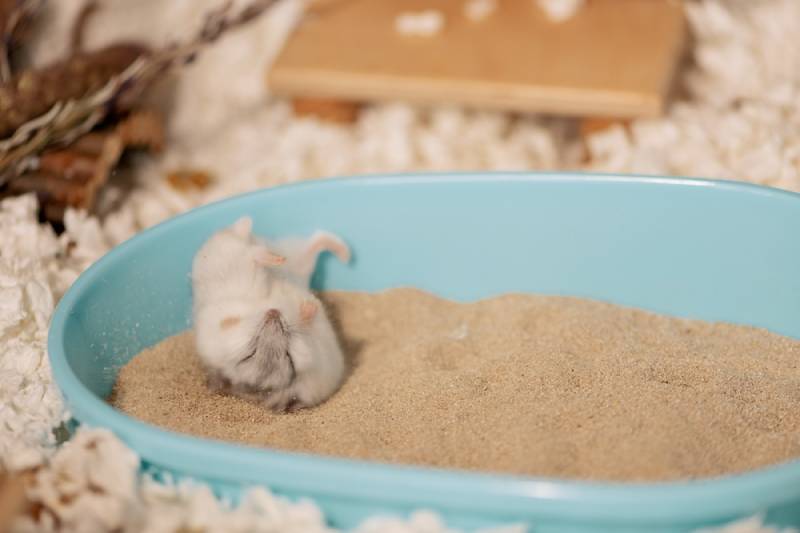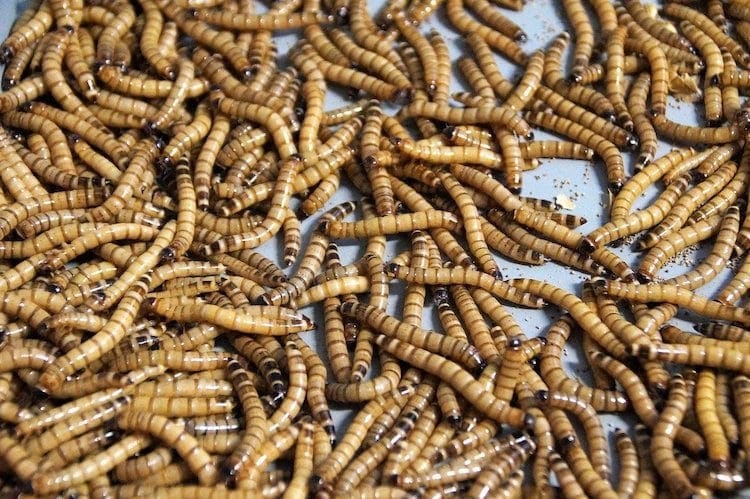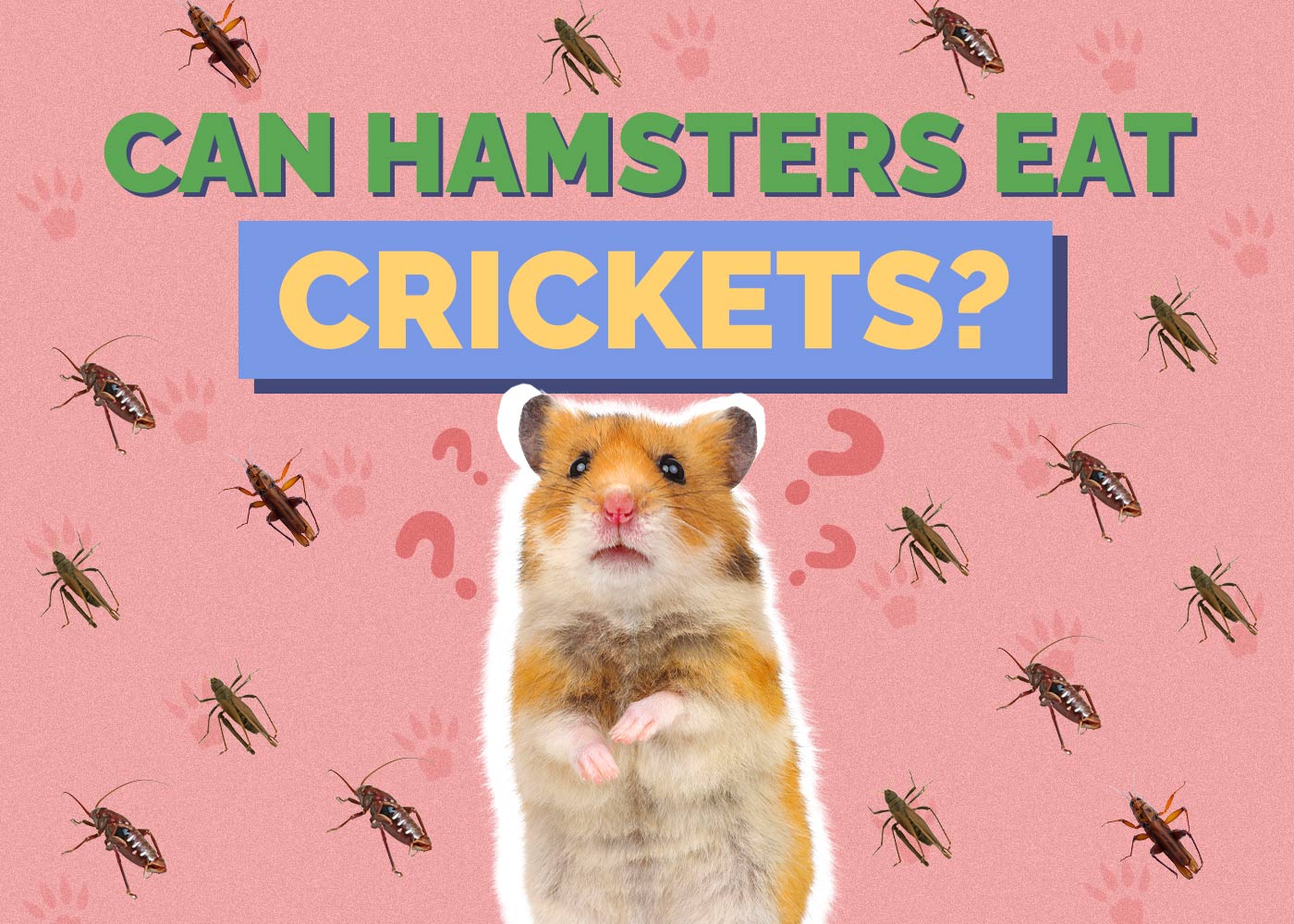Can Hamsters Eat Goldfish? Vet-Reviewed Facts & Safety Guide
Updated on

Hamsters and goldfish are popular pets. While they may both be omnivores, eating plant and animal foods, they live in vastly different habitats. It might seem like a good idea to feed goldfish to your hamster for extra protein, but it is not.
These animals do not encounter each other in the wild, so hamsters do not naturally eat them. Goldfish do not belong in a hamster’s diet and may put their health at risk.
Can Hamsters Safely Eat Goldfish?
Despite hamsters being omnivores that can eat food from animal sources, goldfish are not appropriate or safe for them to eat. Goldfish may contain parasites and other pathogens that could be harmful to hamsters. Plus, most goldfish are too large for hamsters to eat and high in fat, the extra calories are unnecessary in their diet. When choosing an appropriate diet for hamsters in captivity, it is best to choose one that replicates the foods they eat in the wild.
Most species of domesticated hamsters originate from deserts, scrublands, and steppes where they would not eat fish. Instead, wild hamsters eat various grasses, seeds, grains, nuts, and insects.
The best protein sources for hamsters will be from their balanced pellet food and additions such as insects or the occasional piece of cooked lean meats like poultry. A healthy hamster diet should contain around 15% to 25% protein, with senior hamsters needing less protein than young or nursing hamsters. Pet hamsters require a commercial, balanced pellet food as a diet staple food but can benefit from a seed and grain mix for variety. Hamsters are foragers and enjoy eating a varied diet and gnawing at different textured foods.
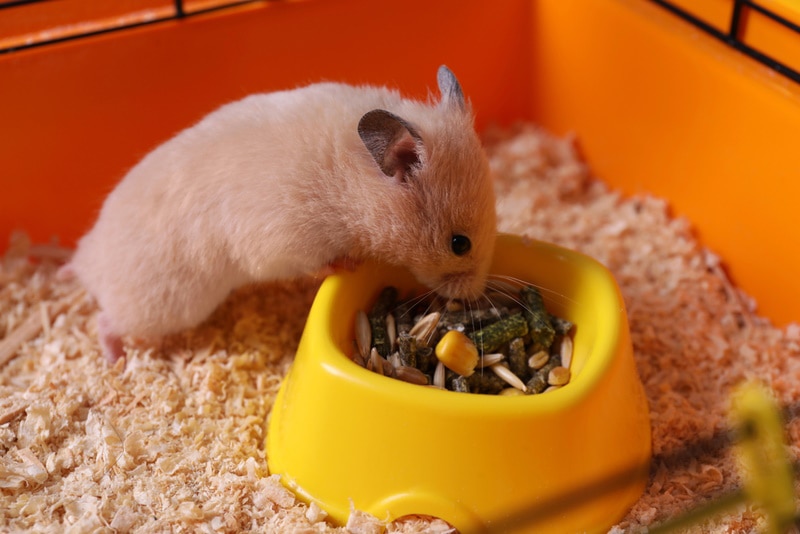
The 4 Reasons Why Hamsters Should Not Eat Goldfish
1. Diseases or Parasites
Goldfish may contain parasites like intestinal worms, even if they appear healthy and are sold from pet stores. Roundworms, tapeworms, and flatworms are common in goldfish, especially ones mass produced on fish farms as feeders.
You do not want to expose your hamster to the diseases and parasites from even the healthiest-looking goldfish. Some goldfish do not show signs of parasitic infestations until the later stages.
2. Unnatural
Goldfish are not a natural part of a hamster’s diet, so it is not a species-appropriate food. They would not normally eat fish in the wild, nor can they effectively catch fish from water. Goldfish are high in fat and contain thiaminase, an enzyme that breaks down thiamine and can lead to a deficiency. Pet hamsters should get their daily nutrients from a commercial hamster pellet, which can be supplemented with small amounts of healthy veggies, fruit and some insects.
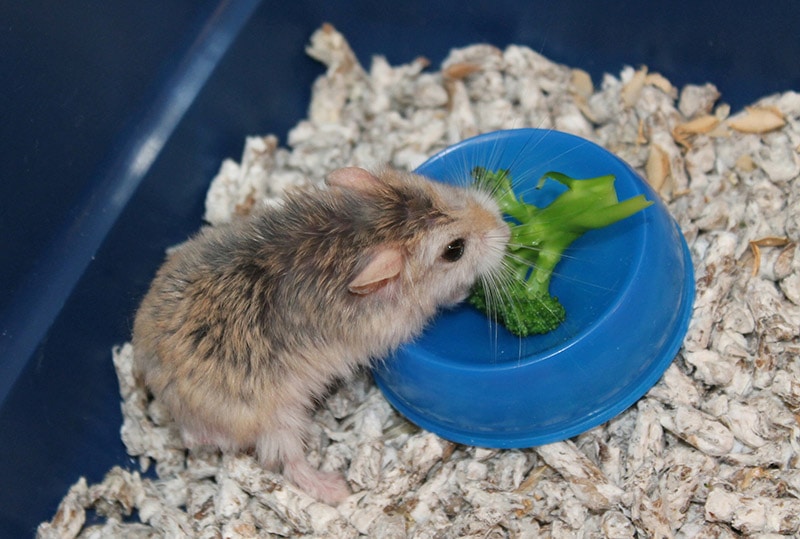
3. Chemicals
It is common for goldfish to be raised in water containing various chemicals such as anti-parasitic medication. Those chemicals might be safe for goldfish, but not for hamsters to ingest. Hamsters could be exposed to the chemicals when they eat or lick the goldfish, which is dangerous.
4. Unsanitary
Aside from the parasites and aquarium chemicals goldfish could be contaminated with, feeding them to hamsters is unsanitary. A deceased goldfish will quickly rot in a hamster’s cage, creating an unhygienic environment and leaving behind a foul smell. Most hamsters are unable to eat goldfish quickly enough without leaving behind some of the body parts.
Furthermore, hamsters prefer to hoard food in their nest. This means that the goldfish will rot amongst their other stored food items and near your hamster as they sleep. This could expose your hamster to dangerous bacteria and leave a foul smell throughout their cage.

Can Hamsters Eat Feeder Goldfish?
No, hamsters should not eat feeder goldfish for the same reasons. Common and comet goldfish are typically mass-produced on fish farms as feeders for certain reptiles. Unfortunately, while these fish were raised for animals to eat, it does not eliminate the above risks. Feeder goldfish are bred in the thousands, often in unhygienic conditions and riddled with parasites or pathogens.
Can Hamsters Eat Cooked Goldfish?
Both raw and cooked goldfish are not good for hamsters to eat and should be avoided. While cooking the goldfish does eliminate some of the bacteria or parasites the goldfish might be infected with, it still doesn’t make it entirely safe.
Goldfish do not contain the right balance of nutrients hamsters need, nor are they adapted to digesting goldfish. Hamsters have sensitive stomachs and feeding them raw or cooked goldfish might lead to digestive issues like diarrhea. These small rodents cannot handle the number of calories in a goldfish, and the small bones can be hazardous.

Conclusion
Hamsters should not eat goldfish for the welfare of both species. Goldfish are high in fat, contain thiaminase and lots of small bones. In addition your hamster may be exposed to harmful parasites or aquarium chemicals, and any leftover fish in their cage will rot and be incredibly unhygienic. The basis of your hamster’s diet should be a healthy and balanced commercial pellet food. If you want to increase your hamster’s protein intake, it is best to feed them safe foods like dried mealworms or small pieces of plain cooked chicken rather than goldfish.
Featured Image Credit: koifish, Shutterstock


